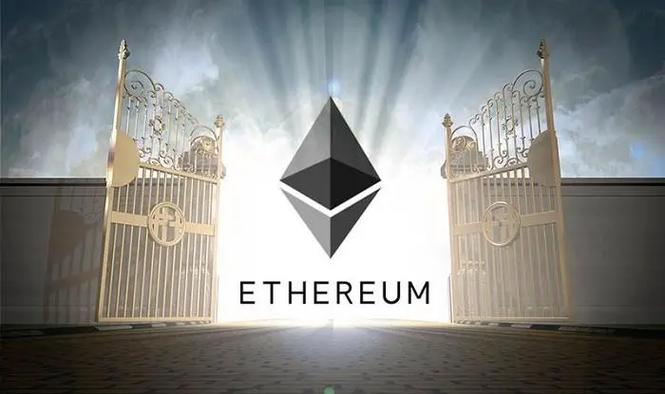Understanding ETH: A Comprehensive Overview
ETH, short for Ethereum, is a blockchain platform that has revolutionized the way we think about digital currencies and decentralized applications. In this detailed exploration, we delve into the various dimensions of ETH, from its origins to its current applications and future potential.
Origins and Founding
Ethereum was founded by Vitalik Buterin, a Russian-Canadian programmer, in 2013. The platform was created to address the limitations of Bitcoin, which was primarily designed as a digital currency. Buterin envisioned a blockchain platform that could support the development of decentralized applications (DApps) and smart contracts.

Blockchain Technology
The Ethereum blockchain is a decentralized network of computers that work together to validate and record transactions. Unlike Bitcoin, which is primarily a digital currency, Ethereum is a platform that enables the creation of DApps and smart contracts. This technology has the potential to disrupt various industries, including finance, healthcare, and real estate.
Smart Contracts
Smart contracts are self-executing contracts with the terms of the agreement directly written into lines of code. They run on the Ethereum network and automatically enforce and execute the terms of an agreement when predetermined conditions are met. This feature has opened up new possibilities for businesses and individuals to engage in transactions without the need for intermediaries.
Ethereum Virtual Machine (EVM)
The Ethereum Virtual Machine (EVM) is a runtime environment for executing smart contracts. It allows developers to write decentralized applications that can run on the Ethereum network. The EVM is a key component of Ethereum’s architecture and has enabled the development of a wide range of innovative applications.
Ethereum 2.0
Ethereum 2.0 is an upgrade to the Ethereum network that aims to improve scalability, security, and sustainability. The upgrade includes a transition to a proof-of-stake consensus mechanism, which is expected to reduce energy consumption and increase network efficiency. Ethereum 2.0 is a significant development for the platform and has generated a lot of excitement in the blockchain community.

ETH as a Currency
ETH is the native cryptocurrency of the Ethereum network. It is used to pay for transaction fees and to incentivize network participants to secure the network. ETH has become one of the most popular cryptocurrencies, with a market capitalization that has grown significantly over the years.
Applications of Ethereum
Ethereum has been used to create a wide range of applications, from decentralized finance (DeFi) platforms to non-fungible tokens (NFTs). Here are some of the most notable applications of Ethereum:
| Application | Description |
|---|---|
| Decentralized Finance (DeFi) | DeFi platforms allow users to access financial services without the need for traditional financial intermediaries. These services include lending, borrowing, and trading. |
| Non-Fungible Tokens (NFTs) | NFTs are unique digital assets that can represent ownership of digital art, music, and other digital content. They have gained popularity in the art and entertainment industries. |
| Supply Chain Management | Ethereum can be used to track and verify the provenance of goods and services, improving transparency and efficiency in supply chain management. |
| Healthcare | Ethereum can be used to securely store and share medical records, improving patient privacy and access to healthcare information. |
Future of Ethereum
The future of Ethereum looks promising, with ongoing developments and innovations. The Ethereum 2.0 upgrade is expected to significantly improve the platform’s scalability and sustainability. Additionally, the growing ecosystem of DApps and smart contracts is expected to continue expanding, driving the adoption of Ethereum across various industries.
In conclusion, ETH is a powerful and versatile blockchain platform that has the potential to transform various aspects of our lives. From its origins as a digital currency to its current applications in decentralized applications and smart contracts, Ethereum continues to evolve and innovate. As the blockchain industry grows, ETH is poised to play a significant role in shaping the future of technology and finance.
